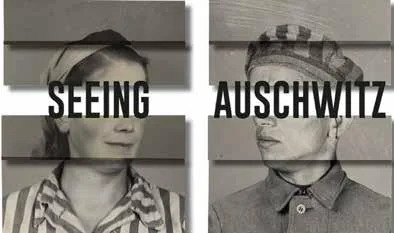
5 minute read
Greenspon Center's Work Aligns with Landmark White House Plan To Combat Antisemitism
August 2023
By Mary Eshet
On May 25, the Biden administration announced the first national strategy for combating antisemitism, outlining over 100 steps federal agencies have committed to completing, and more than 100 specific calls to action aimed at Congress, civil society, state and local governments, academic institutions, businesses, and religious communities. The plan is organized around four pillars: raising awareness, improving security, reversing normalization, and building solidarity.
The need for a concerted effort is evident. Anti-Defamation League (ADL) tracked 3,697 incidents of harassment, vandalism, and assault in 2022, according to a report released in March, up 36% from the previous year and the third time in five years that the tally has been the highest number ever recorded.
“We are excited about the comprehensiveness and specificity in the plan,” said Rabbi Judy Schindler, director of the Stan Greenspon Holocaust and Social Justice Education Center at Queens University. “We are also amazed at how many of our programs and initiatives connect to it, especially the calls to action in Pillars one, three, and four. We’re energized to offer our resources to help achieve these goals.”
Pillar one of the plan includes goals to increase school-based education about antisemitism, including the Holocaust, and Jewish American heritage. Again, there is no doubt about the need for this effort. The plan includes information about the discouraging current state:
“In 2020, the first 50-state survey on Holocaust knowledge among millennials and Gen Z found that most young Americans lack basic knowledge of the Holocaust. For example, 63% of survey respondents did not know that 6 million Jews were murdered in the Holocaust, nearly 60% did not know what the concentration camp Auschwitz was, and 11% believed that Jews caused the Holocaust. “
“Through our Certification in Holocaust Pedagogy program and other professional development offerings, we are working to better prepare educators to teach about the Holocaust and educate students about antisemitism,” said Katie Cunningham, Holocaust curriculum and outreach specialist with the Greenspon Center. Cunningham has also recently produced an 80-lesson Holocaust elective curriculum for Charlotte Mecklenburg Schools, in response to the new N.C. Holocaust education mandate.
Pillar one also calls for raising awareness about antisemitism and Jewish American heritage outside the classroom. The Greenspon Center sponsors programs such as book discussions, community dinners, and its annual event on International Holocaust Remembrance Day, which are designed to increase awareness of antisemitism and Judaic culture. The Greenspon staff also participates in corporate, cultural, faith, and community programs to increase understanding of Judaism and the threats of antisemitism. The staff welcomes requests for presentations, participation, and facilitation.
Pillar three focuses on “reversing the normalization of antisemitism” calling on schools and colleges to be clear in condemning all forms of hate and in enhancing awareness of religious cultures and practices. The Greenspon Center’s work to support Hillel and Jewish life on the Queens University campus is aligned with this goal. Additionally, the Student to Student program that enables Jewish students to share their culture and traditions with other high school and middle school students helps further awareness and understanding.
Pillar four calls for building coalitions across communities to fight hate. The plan notes: “A key aim of those who spread hate is to turn individuals against one another based on faith, race, national origin, ethnicity, sexual orientation, gender, gender identity, or other factors. We can counter these efforts by refusing to be divided.”
“The Charlotte Black/Jewish Alliance is a wonderful example of refusing to be divided,” said Schindler. The Alliance, sponsored by the Greenspon Center and Johnson C. Smith University, and made possible by seed funding from the Jewish Federation of Greater Charlotte, brings together Blacks and Jews to provide a safe place for conversation and a way to unite against hate.
Perhaps among the Greenspon Center’s most ambitious efforts is hosting the internationally acclaimed photographic exhibit “Seeing Auschwitz” at the VAPA Center in Charlotte in 2024. Conceived and produced by Musealia, in partnership with the Auschwitz-Birkenau State Museum, and in collaboration with the UN and UNESCO, “Seeing Auschwitz” comprises 100 photographs of this universal symbol of the Holocaust with an audio guide including testimonies from survivors.
“This powerful exhibit will increase knowledge and understanding of the Holocaust and antisemitism in a personal and powerful way,” said Judy La Pietra, associate director of the Greenspon Center. “We are proud to bring this opportunity to the Charlotte community.”
“This White House plan and its recognition that antisemitism is a grave danger not only for Jews, but for society as a whole, could not be more aligned with our mission,” said Schindler. “The words in the plan are powerful, but for it to really make a difference, we must all work hard and contribute, and we are redoubling our efforts for even greater impact.”
To learn more about the Stan Greenspon Holocaust and Social Justice Education Center’s work or support the effort to bring “Seeing Auschwitz” to Charlotte, contact Rabbi Judy Schindler at schindlerj@queens.edu or Judy La Pietra at lapietraj@queens. edu.











